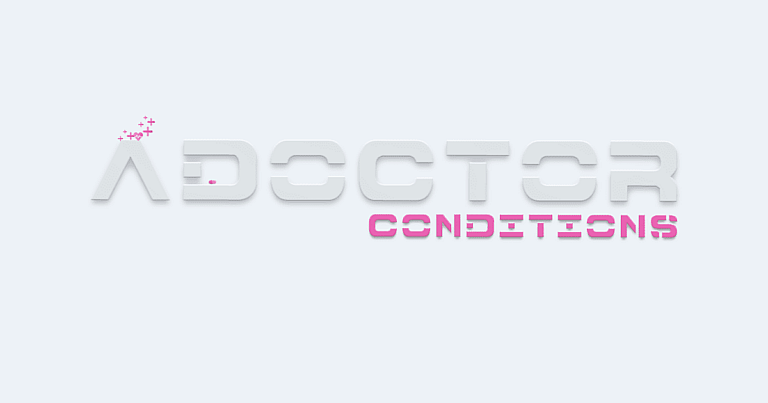What is Tension-Type Headache?
[trp_language language=”en_US”]
A tension-type headache, or tension headache, is the most commonly experienced type of headache. It is a primary form of headache, meaning it is caused by no underlying medical condition. Instead, tension headaches are typically caused by external factors such as:
- Stress
- Anxiety
- Tiredness.
Tension headaches can be both episodic and chronic. Episodic tension headaches occur on fewer than half the days of a month. Chronic tension headaches occur on half the days of a month or more for three months or more consecutively. This type of headache will typically have a duration of 30 minutes to several hours, but can on occasion last for a number of days.
Although they can be uncomfortable, a tension headache will not typically be severe enough to interfere with day-to-day activities and will not normally require special medical attention.[1]
Tension-type headache symptoms
The sensation associated with a tension headache is usually described as a band of pain around the forehead or a weight on top of it. Tension headaches can cause discomfort, but will not usually prevent a person from sleeping or carrying out their day-to-day activities.[2][3]
Tension headaches are usually mildest in the morning and develop over the course of a day. Although it is typical for the associated pain to be mild to moderate, in some cases, it may become severe.
Feeling unwell?, check your conditions Adoctor conditions.
Tension-type headache causes
The precise cause of a tension headache is not known, though a number of factors are known to trigger them.
These factors include:
- Stress and anxiety
- Dehydration
- Overuse of the muscles in the neck and face
- Tiredness
- Eye strain or squinting
- Hunger
- Factors such as bright sunlight, heat, cold and noise
- Poor posture
- Physical inactivity
Tension-type headache diagnosis
A doctor will diagnose a tension headache after hearing a description of the symptoms being experienced. People with tension headaches will not normally have any underlying medical conditions or experience symptoms other than those typical of a tension headache. In most cases, they will feel well between headaches.[4]
Doctors will generally attempt to identify the trigger or triggers behind a person’s tension headaches, which may involve a series of questions about their lifestyle and medical history. Following this, a doctor may be able to offer treatment advice.[5]
Sometimes, recurrent headaches may be caused by another underlying problem. Doctors will be aware of this when diagnosing tension headaches and will note any circumstantial factors that make this more likely. These include:[4]
- A head injury that has been experienced in the recent past (within three months)
- The headaches worsening
- The headaches being accompanied by a high fever
- The headaches beginning very suddenly
- Headaches being accompanied by confusion
- Headaches being accompanied by nausea or vomiting
- Whether the person experiencing headaches has a weak immune system, e.g. due to a condition such as HIV or medication such as oral steroid medication
- Whether the person experiencing headaches has or has had cancer
If any of these factors are present, doctors may run further tests in order to accurately diagnose the root cause of the headaches and ensure there is no misdiagnosis.
Tension-type headache treatment
In most cases, treatment for tension headaches involves a combination of lifestyle changes and pain-relieving medication.
Painkillers
Painkillers can often be effective in treating tension headaches. It should be noted, however, that painkillers should not be used for more than a couple of days at a time. This can lead to medication-overuse headaches. If chronic tension headaches are being experienced, a doctor will be able to advise on suitable treatment options.
The most common pain relief medication prescribed to treat tension headaches include:[6][7]
- Paracetamol: Available over the counter from pharmacies and other stores, paracetamol can be effective in relieving the pain of a tension headache. It is most effective when taken as soon as the headache develops and a second dose can be taken after around four hours.
- Anti-inflammatory medication: Some types of anti-inflammatory medications, such as Ibuprofen, are available over the counter. Others require a prescription, such as naproxen. They can be effective in relieving pain, but may in some cases lead to side-effects such as stomach problems.
- Aspirin: They can be effective in relieving pain but may lead to stomach-related side effects. For this reason, some doctors will not advise the use of aspirin.
Before using any form of medication, the patient information leaflet accompanying it should be read in full and its instructions followed. Combining different forms of medication is generally not advised.
During the headache
During the headache episode itself, certain relaxation techniques can aid a speedy recovery and help reduce pain. These include:
- Hydration: Drinking plenty of water throughout the day can help ease the pain. Room temperature water is the best option, because ice-cold water can cause headaches in some people.
- Relaxation: Getting plenty of rest and lying or sitting in a comfortable position can help a headache pass quickly. Creating a quiet, dark environment by drawing the curtains/blinds or wearing an eye mask can also help, because in some people light makes headaches worse.
- Breathing and muscle relaxation exercises: Deep breathing exercises can help relax the body, easing the tension related to a headache. Likewise, muscle relaxation exercises can help to reduce tension and pressure in the head and neck area. Doctors will be able to recommend a variety of techniques to practice during a headache.
- Light exercise: For tension headaches, non-intensive exercise activities, such as yoga, walking or relaxed cycling can help alleviate the headache symptoms. If the weather is fine, these gentle exercise activities, can ideally be carried out outdoors, in order to breathe in fresh air.
Tension-type headache prevention
A number of measures can be taken to help prevent tension headaches. These include:
- A headache diary: Keeping a diary of when and where headaches takes place, as well as how severe the headaches are, can be useful in identifying headache triggers. Using this information, it may become easier to avoid these triggers.
- Stress relief and lifestyle changes: In many cases, stress is a contributing factor to tension headaches. Relaxation techniques such as meditation, yoga or other methods like acupuncture may be effective in preventing headaches. Furthermore, a regular exercise regime and a healthy, balanced diet can help prevent tension headaches by reducing the overall-stress level.
- Medication: In some cases, particularly when headaches are frequent and severe, preventive medication may be advised by a doctor. Amitriptyline, an antidepressant, is the most commonly prescribed medication for this purpose.
The lifestyle changes needed will vary from person to person, and it may take a period of trial and error before results can be seen.
Tension-type headache FAQs
Are any natural or home remedies effective for treating tension-type headaches?
Peppermint and lavender oils both have cooling and soothing properties which can help relieve the symptoms of a headache. Peppermint oil, especially, can provide a long-lasting cooling sensation, particularly if the product also contains ethanol.
Oil products are usually intended to be applied to the temples, forehead, and back of the neck using the fingers.
Always use natural products according to the recommendations on the packet.
Other names for tension-type headache
- Tension headache
-
NHS Choices. Tension-type headaches. July 16, 2018. Accessed November 19 , 2018. ↩
-
Patient. “Tension Headache: What are the symptoms of a tension headache?” December 11, 2017. Accessed January 5, 2018. ↩
-
The Migraine Trust. “Tension-type headache.” Accessed January 5, 2018. ↩
-
Patient. “Tension Headache: How can I be sure it is not a more serious type of headache?” December 11, 2017. Accessed January 8, 2018. ↩ ↩
-
National Institute for Health and Care Excellence. “Headache – tension type.” April, 2015. Accessed January 8, 2018. ↩
-
UpToDate. “Patient education: Headache treatment in adults.” July 21, 2017. Accessed January 8, 2018. ↩
-
Patient. “Tension Headache: What are the treatments for tension headache?
” December 11, 2017. Accessed January 8, 2018. ↩
[/trp_language]
[trp_language language=”ar”][wp_show_posts id=”9287″][/trp_language]
[trp_language language=”fr_FR”][wp_show_posts id=”9283″][/trp_language]
**What is Tension-Type Headache?**
**Q: What are the causes of tension-type headaches?**
**A: The exact cause is unknown, but factors such as stress, muscle tension, anxiety, and poor posture are thought to contribute.**
**Q: What are the symptoms of tension-type headaches?**
**A: Common symptoms include:**
* Mild to moderate pain in the head, often described as a tight band or pressure
* Pain that lasts for 30 minutes to several hours
* Tenderness in the muscles of the neck, head, or shoulders
* Sensitivity to light or noise
**Q: How is tension-type headache diagnosed?**
**A: Diagnosis involves a physical examination and a review of symptoms. Blood tests or imaging studies are typically not needed.**
**Q: What are the treatments for tension-type headache?**
**A: Treatment options include:**
* Over-the-counter pain relievers, such as ibuprofen or acetaminophen
* Prescription medications, such as triptans or muscle relaxants
* Physical therapy to improve posture and muscle tension
* Relaxation techniques, such as yoga or meditation
* Biofeedback to reduce stress and monitor muscle tension
**Q: Can tension-type headache be prevented?**
**A: Preventing tension-type headaches may not be entirely possible, but managing stress and lifestyle factors can help reduce the frequency and severity of episodes.**
**Q: When should I see a doctor about tension-type headache?**
**A: Seek medical attention if your headaches are:**
* Persistent or severe
* Accompanied by fever, nausea, or vomiting
* Worsening or changing in pattern
**Q: What is the prognosis for tension-type headaches?**
**A: Tension-type headaches are usually not a serious condition and most people can manage them with self-care techniques or occasional medication. However, they can be chronic and affect daily life.**
**Keywords:**
* Tension-type headache
* Causes
* Symptoms
* Diagnosis
* Treatment
* Prevention
* Prognosis








Its a type of chronic daily headache
rnYes, that’s one type but not always